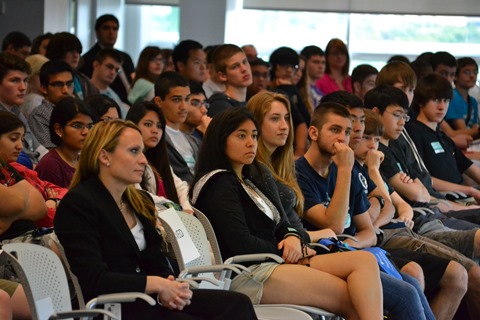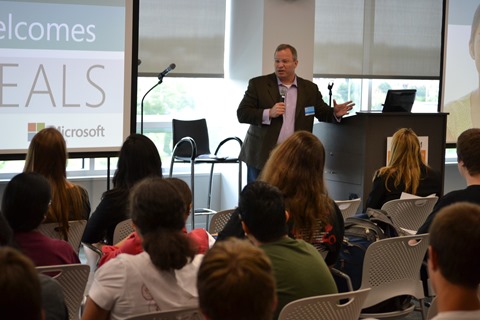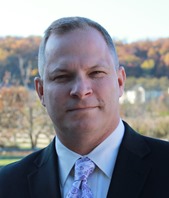More than 200 High School Students Get a Taste of Computer Science in the Real World
By Dan Kasun, Sr. Director of US Public Sector
Last Friday, I joined tech industry colleagues and more than 200 students from seven local high schools to kick off the Technology Education and Literacy in Schools (TEALS) Computer Science Field Trip at AOL’s Northern Virginia campus. It was a great day, consisting of several sessions where industry experts shared their computer science experiences and expertise. Following hands on sessions, students participated in an opportunity fair that helped them to see the real-world opportunities that exist in computer science.
Over 200 students came from seven local highschools to learn about computer science careers.
TEALS is a Microsoft YouthSpark program that places volunteer technology professionals in schools with two goals: to teach computer science in schools that don’t have an existing program and to inspire students to pursue further computer science education and ultimately, careers in technology. The volunteers work with high school teachers to assist with curriculum and lesson delivery, and bring computer science to life with real world examples.
TEALS started in Washington State in 2009 at one school. There are now TEALS programs running in 7 states covering 35 schools, reaching more than 1,500 students. This year, we launched TEALS in the greater Washington DC area at six schools, including: Marshall and Friendship Charter Schools in DC, and Wakefield, Broad Run, Stone Bridge and Park View High Schools in Northern Virginia.
I’m one of the program volunteers at Stone Bridge High School. The reason I volunteered is simple: I work with many technology companies in my role at Microsoft, and I see firsthand the challenges that the tech industry has in finding and hiring qualified, talented employees. This creates a drag on economic growth – from the largest companies to startups just looking to get off the ground.
Microsoft’s Dan Kasun speaking to aspiring computer scientists at the TEALS field trip.
Computer science and computer engineer graduates consistently top national employment lists in terms of job placement and starting salaries. Despite this, the number of students pursuing degrees in computer science is still extremely small compared to other disciplines, and falls far short of industry needs. At current rates, between 2010 and 2020, the U.S. economy will produce more than 120,000 additional computing jobs annually that will require at least a computer science degree, but the country’s higher education system is currently producing only 40,000 bachelor’s degrees in computer science annually. In 2010, only 19,390 students in the United States out of 14 million took the Computer Science Advanced Placement (AP) test. This represents only 0.6 percent of all AP tests taken that year.
With so much demand and opportunity, one would think that all high schools would teach computer science and students would be stampeding into the discipline. Right now, that’s not happening, and it’s our responsibility to change it.
I’m passionate about the potential to expand access to computer science classes in the greater DC region, as we have the perfect storm of very strong schools, amazing teachers, smart students and technology companies of all sizes. In addition, several of the nation’s best universities – as well as the nation’s political center -- are located in our backyard. All of the ingredients to continue to foster tech innovation and spur economic growth are here, but it all starts with giving students the education they need to succeed.
Click here to learn more about the TEALS program or to volunteer in your community.


